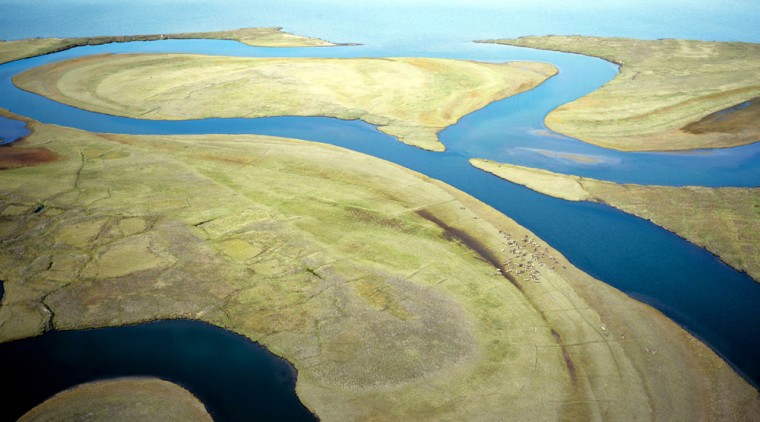A judge has halted part of a federal lease sale of oil-rich land on Alaska’s North Slope, but the government on Tuesday said it can still sell sections outside an area environmentalists want to preserve for migratory birds and calving caribou.
The original sale in the National Petroleum Reserve-Alaska would have included the Teshekpuk Lake area, which sits above 2 billion barrels of recoverable oil, federal estimates say. Environmental groups argue that a 600,000-acre section that includes the lake contains some of the most important wetlands in the Arctic.
The decision on Monday in U.S. District Court in Anchorage blocked the Bureau of Land Management from selling leases to 2.5 million acres of the 8 million acres opened to bidding in August, according to Julia Dougan, the bureau’s acting state director.
Judge James K. Singleton echoed a ruling he had issued on Sept. 7 that temporarily halted the sale in the vast area set aside in 1923 for its oil resource.
Government environmental studies, Singleton wrote, were too narrow in scope because they did not consider how leasing in the northeastern part of the 23 million-acre reserve would affect land and wildlife in the northwestern section.
The ruling expressly forbade the government from selling leases to tracts in the northeast section of the reserve, but left room for sales in the northwest section, according to Danielle Allen, a spokeswoman for the bureau in Alaska.
After consulting attorneys on Tuesday, the bureau decided it did not have to close the 5.5 million acres in the northwestern area it had offered for lease.
“We believe the northwest tracts are on very sound legal footing,” Dougan said.
The bureau will announce the high bidders for the northwest tracts on Wednesday, as planned, Dougan said. The bureau had received bids for 940,000 acres as of last week’s deadline, she said.
Plaintiffs, who included the National Audubon Society and the Center for Biological Diversity, said they were not surprised by the government’s decision to continue the sale.
“We are concerned with parts of the northwest planning area because of migratory bird and waterfowl habitat, but we don’t have a specific conflict with a large number of these tracts,” said Charles Clusen. “This lawsuit was about Teshekpuk Lake.”

The government plans to redo its environmental impact studies and did not rule out the possibility of trying to reopen the lake region to lease sales.
“The BLM continues to believe that the development of those energy resources and protection of the natural resources aren’t mutually exclusive,” Dougan said.
Leases for nearly 13 million acres of the reserve are eligible for sale or have been sold to oil companies for exploration, most notably ConocoPhillips. The company hopes to augment waning crude stocks in the Prudhoe Bay fields east of the NPR-A.
The company’s spokeswoman in Anchorage did not immediately return calls for comment Tuesday.
The reserve contains between 5.9 billion and 13.2 billion barrels of technically recoverable oil resources and 39 trillion to 83 trillion cubic feet of natural gas, according to federal estimates.
